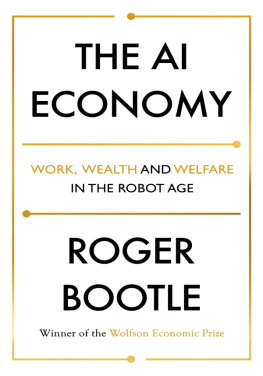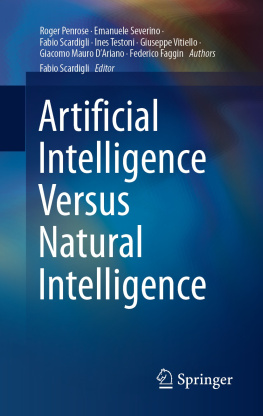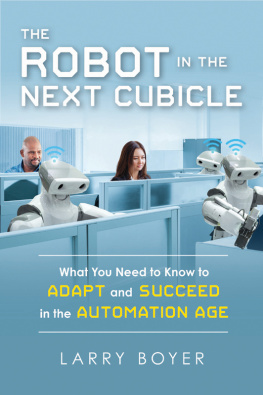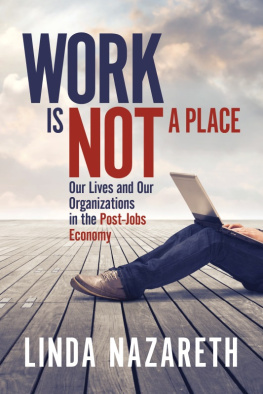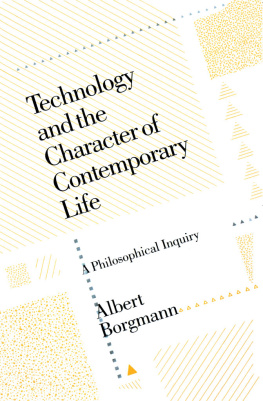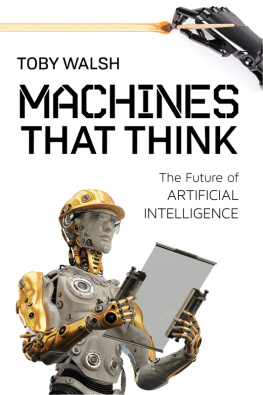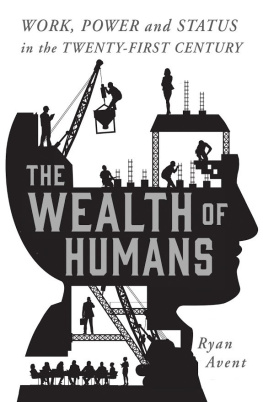Table of Contents
- Contents
The AI Economy
Work, Wealth and Welfare in the Robot Age
ROGER BOOTLE
How to use this eBook
You can double tap images to increase their size. To return to the original view, just tap the cross in the top left-hand corner of the screen.
Contents
Preface
The genesis of this book was straightforward. Over the last three years I have been overwhelmed by accounts of the impending shock to the economy and society from the spread of robots and the advances of artificial intelligence (AI). And I have met umpteen people and businesses who are seriously concerned about this, in some cases concerned to the point of panic. The ranks of the concerned apparently even include many people in leading AI firms who are worried about the possible impact of AI on humanity but darent voice their fears in public because of the possible implications for their careers.
It is evident to me that this is one of the greatest economic issues of our age. Moreover, it promises to be one of the greatest social issues as well. Indeed, it threatens to overwhelm everything else that we are concerned about. Jim Al-Khalili, Professor of Physics at Surrey University and President of the British Science Association, has recently said that AI is more important than all other big issues facing humanity, including climate change, world poverty, terrorism, pandemic threats and anti-microbial resistance. Whether or not he is correct about the ranking compared to, say, climate change and terrorism, this makes robots and AI seem wholly bad. In fact, plenty of people (including, interestingly, Professor Al-Khalili) think that they have extraordinary capacity to bring benefits to humanity.
So, whether the implications are dastardly or beneficial, I have wanted to understand what is happening with robots and AI and to consider what the consequences might be. This book is the result of my investigations.
After spending more than a year immersed in the literature, I now know my way around the subject reasonably well. Yet readers should not be concerned that my new-found knowledge has turned me into a geek. Rest assured that it has not detached me from my bearings. I approached this subject without the advantage of great technical knowledge. In fact, I should confess that the truth is worse than this. Before my immersion in the AI literature, my children regarded me as something of a technophobe. And I am sure that the staff at Capital Economics (the company I founded) would readily have concurred with this judgment. My only edge has been a knowledge of economics and a lifetime spent thinking and writing about economic issues.
Not that this brings any direct advantage in understanding the technical matters at the bottom of this subject. And indeed, it did not prevent me from being utterly flummoxed and bamboozled by much of what the technical experts have to say. I may now claim to have reached a reasonable level of understanding, but I have spent many a long hour swathed in the proverbial hot towels, struggling to comprehend what the robotics and AI experts were saying.
Could my very absence of prior technical knowledge and understanding bring some sort of indirect advantage to set against the obvious disadvantages? Perhaps. At least it put me in the same starting position as most of my readers who, just as I once was, feel battered and bemused by the subject.
Waves of technobabble seem to flood over us whenever the words robots and artificial intelligence appear. To read about these subjects is to immerse yourself in a sea of waffle, wonder, and worship at the altar of technology. You risk drowning in the onrush of loose language, flabby concepts, crude extrapolation, impenetrable jargon and lack of perspective, all wrapped up in an aura of supposed inevitability.
And yet something truly amazing is happening in the world of technology, not just increasing digitization, or the development of nanotechnology, biotechnology and 3D printing, but also with regard to robots and AI. In this cocktail of ingredients for a technological revolution it is AI that stands out. It may offer the greatest benefits, but it also seems the most threatening to individual human beings and to society as a whole. For it seems to penetrate deep into the human realm and to pose fundamental questions about who we are and what we may become.
My task here is not only to survive the deluge of technobabble myself and to ensure that my readers do not drown in it but, more importantly, to salvage the many nuggets of truth amid this sea of exaggeration and to draw out the possible implications for our future.
These possible implications are wide-ranging. The experts on AI do not confine themselves to the merely technical. Indeed, they range far and wide across the whole terrain of economics, social structure, politics, and even the meaning of life. In the process, they produce conclusions that are both baffling and potentially terrifying for individuals, companies, and governments.
These three groups find themselves at a loss to know what to think about the momentous issues at stake let alone what to do in the face of them. It is here that the background, training, and experience of an economist can profitably be brought to bear. At least, I hope they can. In the end, it is you, the reader, who must be the judge of this.
I should emphasize, though, that you wont find here much enlightenment about the technical details or the essential nature of robotics and AI. Readers who want these things will have to look elsewhere. This is a book about the economic consequences of robots and AI. It is my attempt to bring clarity about these consequences to anyone who is potentially affected by them clarity about how to regard these developments, and clarity over the choices that face them about what to do. By the way, these issues are so momentous that in this instance anyone really amounts to everyone.
Yet these issues are so complex and intertwined with all sorts of things whose future cannot be known that, however much clarity can be brought to the subject, there can be no certainty. When peering into the future we simply have to skin our eyes and try to make out, as best we can, what shapes lie before us.
As with my previous books, I dont think that this profound uncertainty is an excuse for saying and doing nothing. After all, everyone has to make decisions that rest to a considerable extent on a view of the future. This applies to individuals as much as to businesses and governments. We cannot escape from uncertainty and we cannot put off all decisions until everything is clear. We simply have to do the best we can.
Inevitably, in the course of researching and writing the book I have accumulated many debts of gratitude. Professor Robert Aliber, Dr Anthony Courakis, Julian Jessop, Gavin Morris, George de Nemeskeri-Kiss, Dr Denis OBrien, Dr Alya Samokhvalova, Christopher Smallwood, Martin Webber, and Professor Geoffrey Wood kindly read various versions of the text and gave me their comments. I am most grateful to them all, and also to the participants at a roundtable discussion in Vienna in December 2018, organized and hosted by the Austrian bank OeKB.
I was fortunate to enjoy the services of a research assistant, Moneli Hall-Harris, who made my task so much easier. Many staff members at Capital Economics helpfully provided data and charts, and others supplied critical comments, especially Andrew Kenningham, Mark Pragnell, Vicky Redwood, Nikita Shah and Neil Shearing. Moreover, I am grateful to Capital Economics for permission to include here the results of some of the research studies it has published over recent years, particularly on the subjects covered in .

